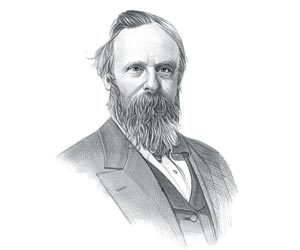|
|
|
|
|
The Robber Barons emerged during the United States Industrial Revolution of the 1800's. The Robber Barons changed the lives of Americans forever, bringing about complex social and economic changes that led to riots, strikes and the emergence of the unions.
The Rise of the Robber Barons for kids: The Great American Capitalists
Robber Barons
Definition
Robber Barons or Captains of Industry?
The Power of the Robber Barons
Effect and Impact of Robber Barons on the Workers
Who were
the
Robber Barons?:
List of Robber Barons and Captains of
Industry
for kids Andrew Carnegie: Steel: Andrew Carnegie (1835–1919), was a steel magnate, self-made businessman and millionaire. In 1892 the workers called a strike at his steel plant in Homestead, Pennsylvania. Carnegie and Henry Frick hired Pinkerton men to break up the strike leading to violent confrontations. Andrew Carnegie was also a Philanthropist and donated towards the expansion of the New York Public Library and wrote and article called the 'Gospel of Wealth' describing the responsibility of philanthropy by the wealthy to further social progress. Henry Clay Frick: Steel: Henry Clay Frick (1849 – 1919) was chairman of the Carnegie Steel Company who also financed the construction of the Pennsylvania Railroad. He donated his collection of old master paintings to create the Frick Collection and art museum Charles M. Schwab: Steel: Charles Schwab (1862 – 1939) was an American steel magnate who built Bethlehem Steel. He led the typical luxurious, opulent lifestyle of a Robber Baron. Schwab Schwab was an inveterate gambler and gained fame as the man who broke the bank at Monte Carlo. He lost his money in the stock market crash of 1929. James Fisk: Stockbroker: James Fisk (1834–1872) was a stockbroker who, with his partner Jay Gould, attempted to corner the gold market on the New York Gold Exchange which led to the Black Friday Scandal. James Fisk was vilified for his unethical business dealings and was murdered on January 6, 1872 in New York City. Jay Gould: Jay Gould (1836 – 1892) was an unscrupulous railroad developer stockbroker and speculator who also obtained a controlling interest in the Western Union telegraph company. Charles Crocker: Railroad: Charles Crocker (1822 – 1888) was a railroad industrialist who founded the Central Pacific Railroad and a one time president of Wells Fargo. Franklin B. Gowen: Railroad: Franklin Gowen (1836 - 1889) was the president of the Philadelphia & Reading Railroad and the Philadelphia and Reading Coal and Iron Company. Gowen was infamous for his involvement in labor disputes during the Great Railroad Strike of 1877 and played a major role in the downfall of the Molly Maguires. George Pullman: Railroad: George Pullman (1831 – 1897) designed the Pullman sleeping car. He founded a company town for his workers, Pullman City which gave him the reputation of one of the compassionate Captains of Industry. Following the Panic of 1893 George Pullman cut wages and jobs and increased working hours which led to the violent dispute known as the Pullman Strike. Cornelius Vanderbilt : Railroad and Steamboats: Cornelius Vanderbilt (1794–1877) was one of the richest men in America and a famous Philanthropist. Although recognized as one of the Captains of Industry he was a ruthless capitalist who cut shipping rates forcing his competitors out of business Leland Stanford: Railroad: Leland Stanford (1824 – 1893) was a ruthless industrialist but was also the founder of Stanford University. He was famous as one of "Big Four" of the Transcontinental Railroad along with Collis P. Huntington, Charles Crocker and Mark Hopkins. Mark Hopkins: Railroad: Mark Hopkins, Jr. (1813–1878) created the "New England Mining and Trading Company" during the California Gold Rush and became one of the " Big Four" Henry Bradley Plant: Railroad and Steamboats: Henry Plant (1819 - 1899) was a tycoon who made his money in transportation via steamboats and railroads. He also invested in hotels J.P. Morgan: Finance and Banking: J.P. Morgan (1837–1913) was a leading financier and banker. During the Panic of 1873 he bailed out the federal government by loaning the Treasury $65 million dollars in gold. Daniel Drew: Railroads, Steamships and banker: The reputation of Daniel Drew (1797 – 1879) was ruined when he introduced "watered stock" to Wall Street consisting of company shares that were issued by false means including counterfeit stock certificates John D. Rockefeller: Petrol and Oil: John D. Rockefeller (1839–1937) was the head of the Standard Oil Company and used much of his fortune to fund many philanthropic causes. However Rockefeller was ruthless and used questionable tactics which gained him enemies. |
| US American History |
| 1866-1881: Reconstruction Era |
| Labor Unions History |
|
|
|
|
|
First Published2016-04-19 | |||
|
Updated 2018-01-01 |
Publisher
Siteseen Limited
| ||
|
|

